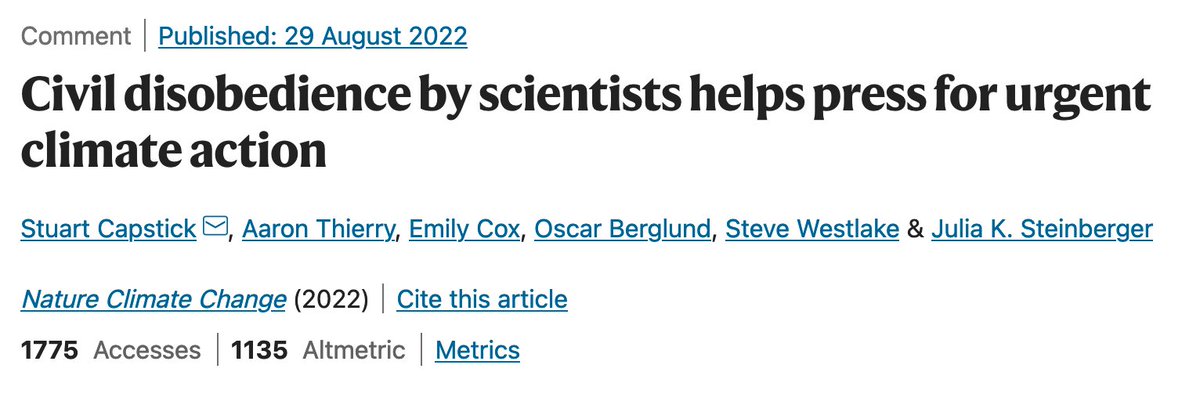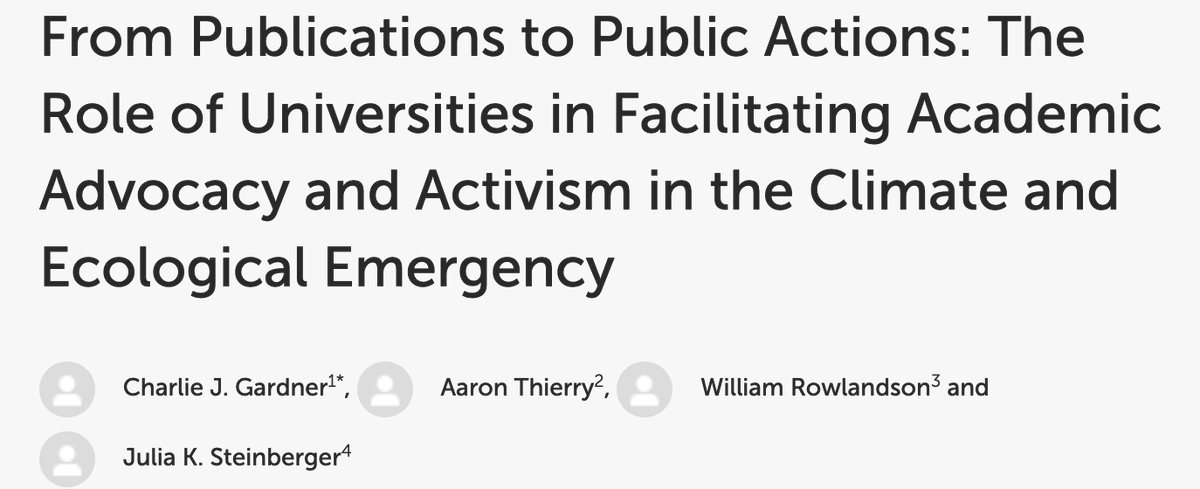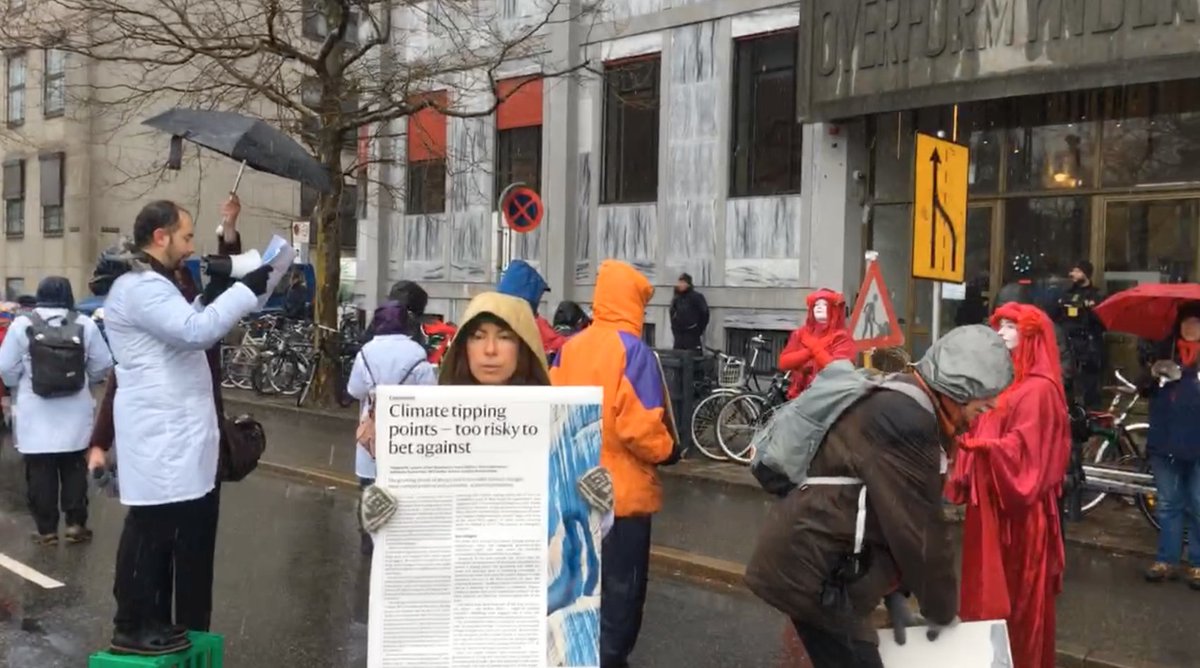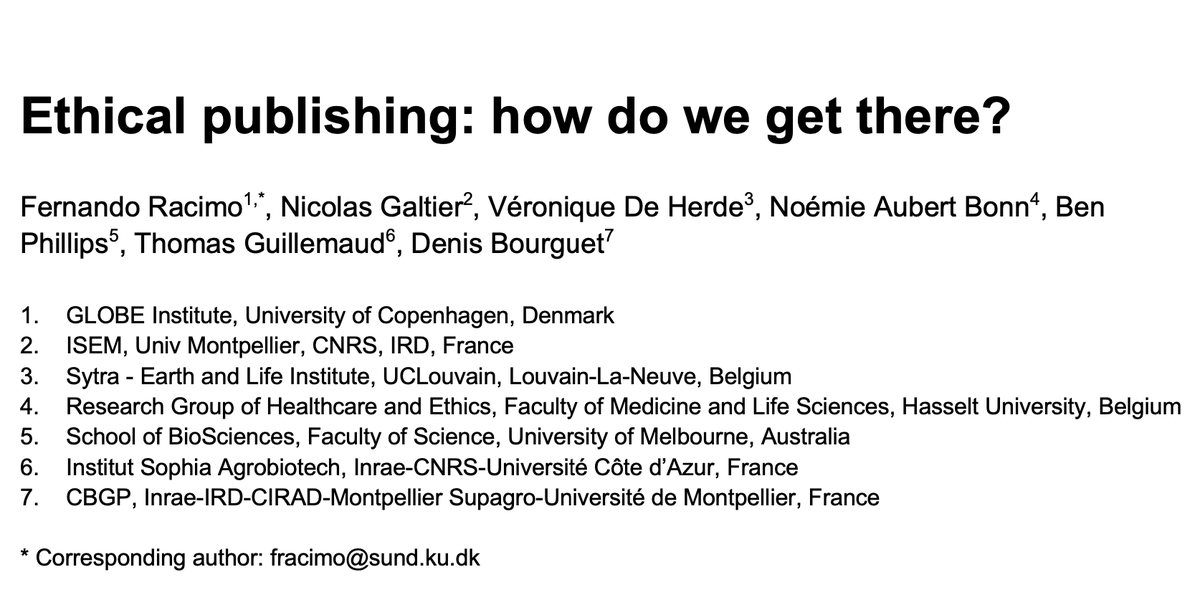
*New preprint* The life sciences are becoming the sciences of the dead. Countless papers, reports and conferences, yet we are still barreling through a mass planetary extinction. Why are we failing to activate society? and what can we do instead? doi.org/10.5281/zenodo… 🧵1/n 

Up to 1 million species are threatened with extermination, and human societies are already feeling the consequences of ecosystems breakdown. We are becoming exceedingly good at recording, modeling and predicting death all around us, & exceedingly bad at preventing more death 2/n 

We study the world, but we also have a duty to inform about its state, to positively affect society. This is fundamental to fields like conservation and public health. Yet, our societies haven't developed the systems change that the crisis needs, as outlined by @IPCC & @IPBES 3/n 







We outline key areas where the life sciences are failing to galvanise political will: the biodiversity crisis, food security, global health & mental health in the face of climate change. Each has been the subject of a mountain of papers, yet continues to worsen every year 4/n 

Scientific outreach is largely based on polite appeals to those in power (w/strong interests in the status quo), rather than passionate and insistent communication with the public being misinformed: medium.com/age-of-awarene… 5/n
The crisis is also impacting mental health: a Web of Science search (by @lane_atmore) illustrates that research articles on the topic of “eco-anxiety" have skyrocketed from near-non-existence a couple of decades ago to hundreds of publications from 2020-2022 6/n 

It is clear we must change tactics. Thankfully, many scientists are starting to outline a path forwards: embracing activism - particularly in the form of civil resistance - as a normalized academic practice. @ScientistRebel1 @ScientistsX @xrsciencerebels 7/n 







We're not the first to say this. Several landmark papers have been published in the last years explaining why it's reasonable, ethical and effective for scientists to engage in acts of civil resistance. 8/n 







In this piece, we specifically call on life scientists to join the scientist-activist movement. We have a professional duty to not only study life, but also engage with the public about the causes of its accelerating destruction. 9/n 

As we show in this figure, scientists can do many things to directly engage w/the public: street teachings, building occupations, wall-papering of scientific posters or academic strikes. All of these are starting to happen around the world, especially in the past 3 years. 10/n 

Some say we must not be normative, forgetting that most academic fields were created - and are embedded - in normative structures. From conservation biol. to the medical sciences, most - if not all - life science fields have a duty to preserve life. conbio.onlinelibrary.wiley.com/doi/10.1111/j.… 11/n
Some are - perhaps understandably - wary of tarnishing their scientific reputation. However, studies show that the public actually expects scientists to actively engage with society in times of crisis - not just stay on the sidelines. tandfonline.com/doi/full/10.10… 12/n
Scientist-activism is not new. It has a long, rich history, from scientists involved in the suffragette movement, to teach-ins and academic strikes in the anti-war and civil rights mobilizations of the 20th century. Timeline created by @SanjaHakala & Myranda Murray 13/n 

Even now - prominent life scientists-activists like @EstebanServat - are advancing climate and ecological justice worldwide, in alliances with local movements under threat of arrest and even murder. We can't let them fight this fight alone. 14/n 

This piece was written by a team of biologists, ecologists, psychologists & health specialists @EliaValentini @GastonRijo @teresalsantos @AnnaNorb @lane_atmore M. Murray @SanjaHakala @FrederikAppelO @CharlieJGardner @JoolesBH + an expert in scientist-activism @FrederikAppelO 15/n
We are scientist-activists involved in @ScientistRebel1, engaging in civil resistance against ecological breakdown: we've blocked roads, participated in teach-ins and occupied buildings. We see this as integral to our academics duties. 16/n 







We are also planning a series of major direct actions this October in Germany, against new planned fossil fuel projects, together with @DebtforClimate & @AufstandLastGen. If you're reading this, we need you! #LevelWithUs scientistrebellion.com n/n 

• • •
Missing some Tweet in this thread? You can try to
force a refresh








